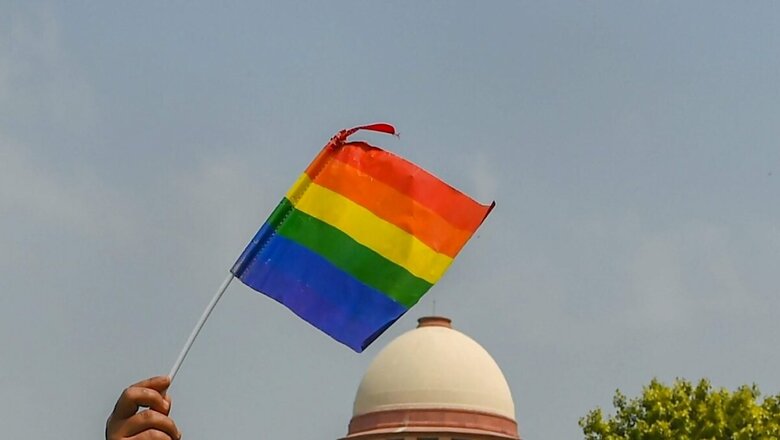
views
The Supreme Court is set to hear review petitions seeking reconsideration of the previous judgment that denied legalisation of same-sex marriages in India on July 10.
The review petitions will be heard by a newly constituted bench, as Justices Sanjay Kishan Kaul and S. Ravindra Bhat, who were part of the original 5-judge bench, have retired.
Replacing them on the bench are Justices Sanjiv Khanna and B.V. Nagarathna. The remaining judges on the bench include Chief Justice of India D.Y. Chandrachud, Justice Hima Kohli, and P.S. Narasimha, Live Law reported.
Why did SC refuse to legalise gay marriage in last year’s verdict?
During last year’s verdict in October, the Supreme Court of India stated that it could not legalise same-sex marriages, with CJI Chandrachud asserting that enacting such a law falls within the domain of Parliament.
The Constitution bench, led by CJI Chandrachud and comprising Justices Sanjay Kishan Kaul, S. Ravindra Bhat, Hima Kohli, and P.S. Narasimha, delivered a split verdict of 3-2, refusing to legalise same-sex marriage in four separate judgments.
The bench differed on issues such as the applicability of adoption rules for queer couples and conducted a critical analysis of opposing viewpoints.
The bench declined to grant legal recognition to same-sex marriage under the Special Marriage Act, stating that there was “no unqualified right” to marriage except those recognised by law. It deferred the decision on whether to recognise same-sex marriages to Parliament and state legislatures, emphasising that it could not declare the Special Marriage Act void or alter its provisions.
During the verdict, the CJI also directed the Centre, states, and Union Territories (UTs) to ensure non-discrimination against the queer community, stating that queer is a natural phenomenon known for ages and is neither urban nor elitist.
The LGBTQIA++ rights activists, who had won a major legal battle in 2018 in the Supreme Court which decriminalised consensual gay sex, had moved the apex court seeking validation of same-sex marriage and consequential reliefs such as rights to adoption, enrolment as parents in schools, opening of bank accounts and availing succession and insurance benefits. Some of the petitioners had urged the apex court to use its plenary power, “prestige and moral authority” to push the society to acknowledge such a union which would ensure LGBTQIA++ lead a “dignified” life like heterosexuals.
LGBTQIA++ stands for lesbian, gay, bisexual, transgender, queer, questioning, intersex, pansexual, two-spirit, asexual and allied persons.
(With PTI inputs)




















Comments
0 comment